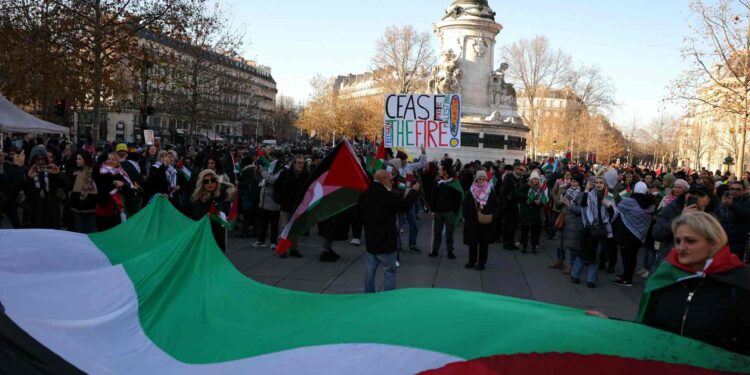French academic and professor Jean-Pierre Filiu believes that Israeli Prime Minister Benjamin Netanyahu and Russian President Vladimir Putin, who are counting on the return of former US President Donald Trump to the White House, will do their utmost to prolong the war on Gaza, which will have disastrous effects on the European Union, whether In its relationship with the Middle East or Ukraine.
It is worrying, as Filho sees it, that the war in Gaza has become accustomed to more quickly than the war in Ukraine, even though the casualties in Ukraine are mostly military, while the threshold for killing 1% of the population is about to be crossed in Gaza, which means compared to France 650,000 French people were killed, including 250,000 children, in addition to millions of wounded, orphans, maimed, and psychologically traumatized.
However, the professor says – in his column in Le Monde newspaper – that nothing foretells the end of this tragedy, because Netanyahu has a great interest in prolonging the war, with the possible re-election of Donald Trump.
In doing so, he is not only gambling on his political survival, but also on ensuring the preservation of immunity as head of government, and removing the judicial prosecutions opened against him since 2019 on charges of corruption, fraud, and breach of trust, which could drag him to prison.
Double bet
For this reason, as Filho, an expert on Middle East affairs, says, Netanyahu assigned his army a more rhetorical than military goal, which is to “eliminate” the Islamic Resistance Movement (Hamas), so that the continuation of hostilities becomes a goal in itself for him, not just to maintain power. , but also to weaken US President Joe Biden, hoping for the return of Trump, who provided him unconditional support during his term.
Netanyahu is not the only one who relies on these calculations. There is also Putin who is convinced that Trump’s re-election will guarantee him victory over Ukraine, so that he will be the biggest winner from the war in Gaza, after Western democracies have proven their inability to defend in the Middle East the principles of law in whose name they supported Ukraine. A blatant embodiment of “double standards.”
With the prospects of Russian success in Ukraine increasing with each day of the prolongation of the war in Gaza, Filiu believes that it is time for Europe to gather its strength to avoid such a disastrous scenario, and mobilize in favor of a permanent settlement of the Israeli-Palestinian conflict with the same energy it did in supporting Ukraine in 2022.
The writer concluded that the costs of Europe’s marginalization of itself in light of the ongoing crisis in the Middle East may be high, which means the European Union must harness its short- and medium-term policy to achieve the “strategic goal” it has set for itself, which is a two-state solution.
According to Filho, this requires re-evaluating all forms of cooperation with Israel and suspending any project that promotes, even indirectly, settlement in the occupied territories of East Jerusalem and the West Bank.
In the end, the Union should not be satisfied with the role of financier for the reconstruction of the destroyed areas in Gaza, the role assigned to it by the United States and Israel, to exempt themselves from responsibility for such a disaster, which necessarily means that the fate of Europe in 2024 will be determined in Gaza, according to For Filio.



